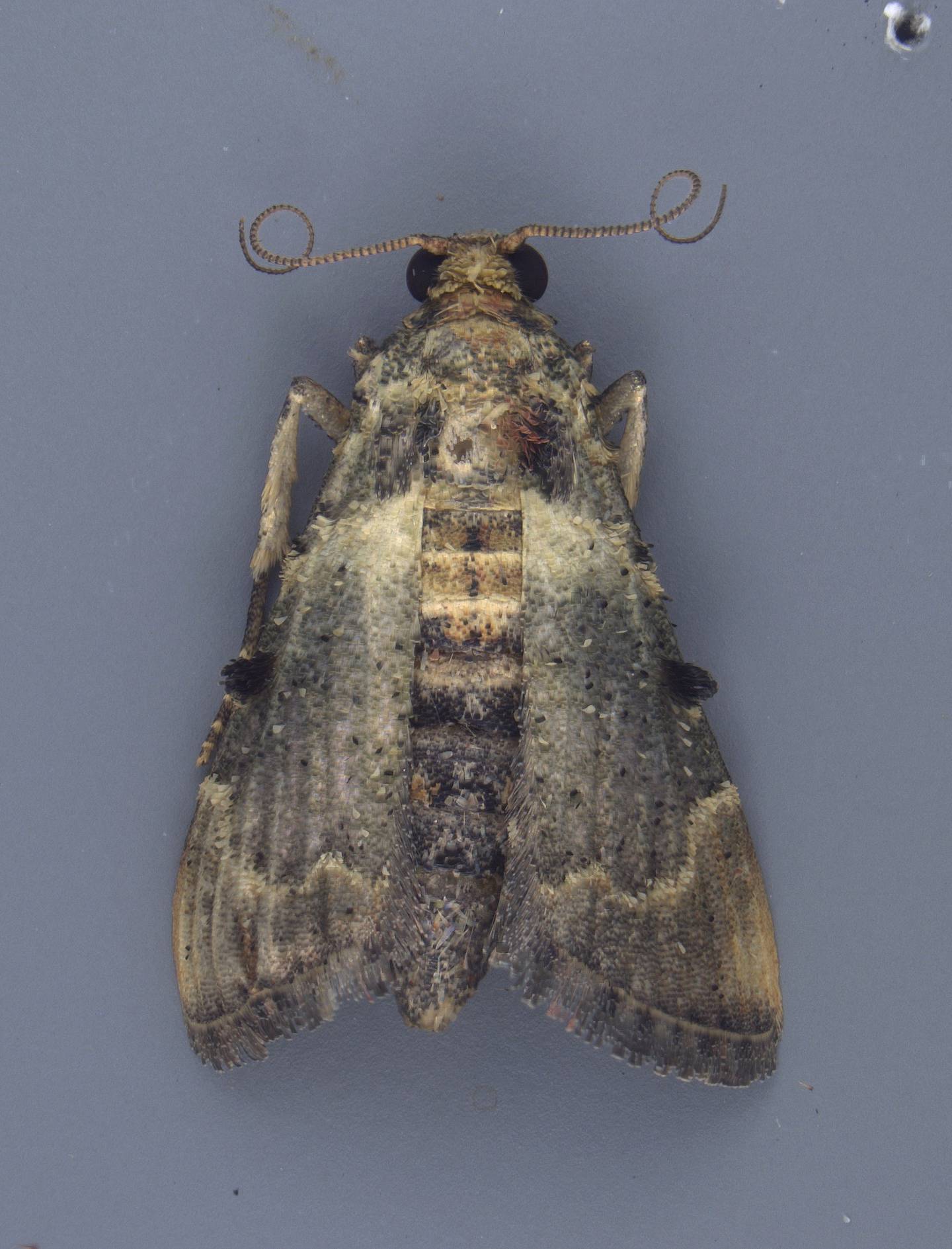Customs and Border Protection agents intercepted an unwelcome visitor tucked away in a traveler’s luggage at Detroit Metropolitan Airport this spring: a rare moth that hadn’t been seen since 1912.
It all started when CBP agents were examining a piece of luggage coming from the Philippines that had curious “insect exit holes.” The exit holes were found inside seed pods that the traveler said were for making medicinal tea.
However, upon further inspection, the agents found moth larvae and pupae. They were baffled by what kind of moth species this might be, even after they hatched and grew into what CBP described as “very flashy” moths with raised black bristles.
The moths were promptly sent to U.S. Department of Agriculture for identification. There, a Smithsonian entomologist confirmed that the moths were members of the Pyralidae family, and part of a species that has not been seen since its first confirmed encounter in 1912, in Sri Lanka.

If you’re wondering why agriculture specialists work at airports across the country, it is for this very reason. According to the press release about the discovery of the Pyralidae moths, every year, CBP agents “intercept tens of thousands of ‘actionable pests'” coming into the country via travelers’ luggage and other containers. That … is a lot of bugs.
CPB agriculture specialists aren’t just trying to keep foreign bugs from entering the country for the sake of it. These pests can be very dangerous to our ecosystem and potentially harm other species of plants, animals, insects — even us. Experts in the field interviewed by The New York Times stressed that an introduced nonnative species such as this moth can pose a serious threat to North American ecosystems: they can decimate crops and forests.
“Agriculture specialists play a vital role at our nation’s ports of entry by preventing the introduction of harmful exotic plant pests and foreign animal disease into the United States,” Port Director Robert Larkin said in CBP’s statement. “This discovery is a testament to the important mission of identifying foreign pests and protecting America’s natural resources.”
This story originally appeared on Simplemost. Checkout Simplemost for additional stories.


